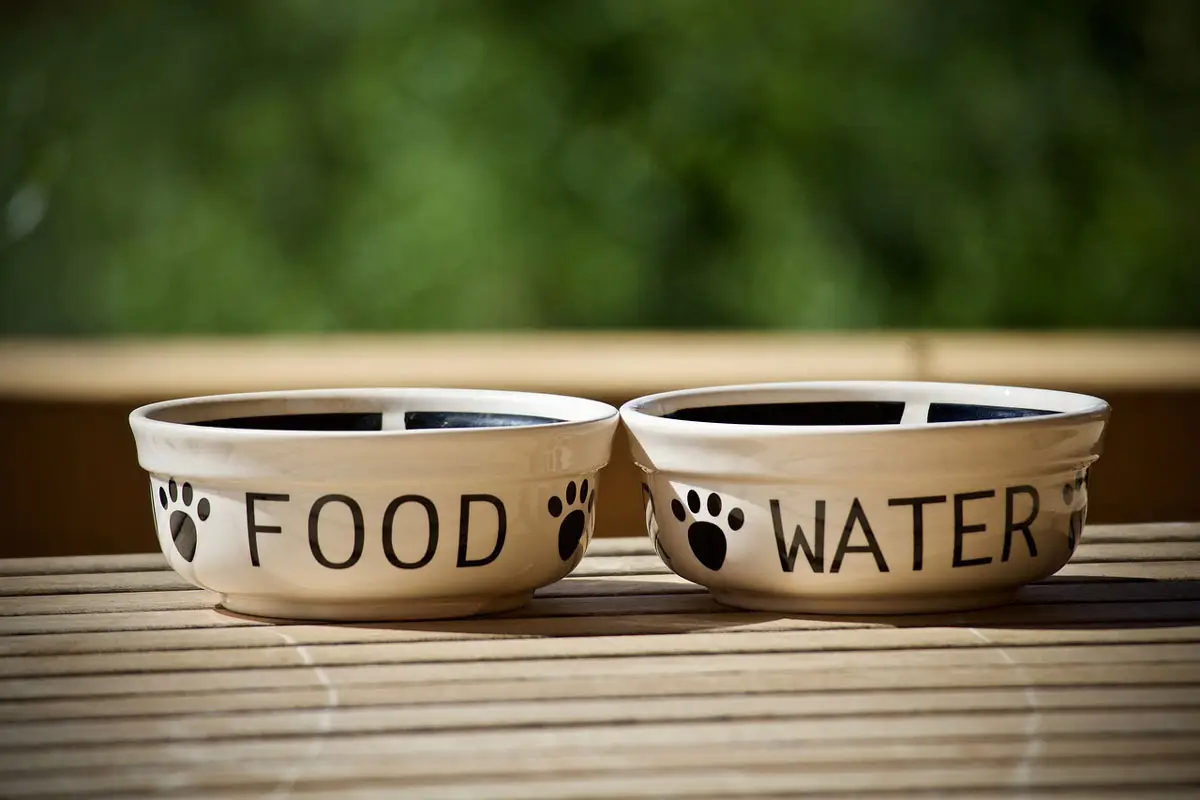A canine kidney disease diagnosis leaves many pet parents feeling lost and unsure what their next move should be. And I’d like you to know that there’s still hope – even if it’s irreversible and progressive.
You can work out a way to treat the symptoms and slow down the progression of the disease; changing your dog’s dietary habits will be a massive part of that.
I get that it’s hard to focus right now, and you feel like crying all the time – but I also know that you want to do what’s best for your four-legged friend.
So, take the time to choose the best dog food for kidney disease and make the first move towards providing your dog with a happy, comfortable life – despite their diagnosis.
In a hurry? After 31 Hours of Research, I Recommend:
92/100
My Score
Hill’s Science Diet Dog Food Adult 7+ for Senior Dogs
Why I chose it as the best?
Provides optimal nutrition while protecting the kidneys
Reduced protein levels with high-quality, animal-based sources
Formulated with low sodium and phosphorus content
Source of D-3, B-complex, and other vitamins, antioxidants, and fatty acids
Wet, canned food formula with high, 74-percent water content
Also suitable for dogs with hepatic disease
How I Picked:

Reviews considered in making a decision
The consumer opinions matter, and I pick through those thoroughly.

Sources inspected & researched
I gauge the source authenticity & authority before checking the opinions.

Hours spent comparing & researching
I spent the time so you don’t have to. The products are reviewed with utmost care.

Products considered
My selection included all the popular entries from popular sources, and was narrowed down to the finest seventeen.
Last Updated: [todaysdate format=”F jS Y”]
By Michael T.This article has been updated to reflect the most accurate information regarding best dog food for Kidney Disease available for those who are interested in caring for their sick pet the best. The best 5 available have changed, and information has been added to assist individuals in finding the best dog food for Kidney Disease currently available on the market. The FAQ has also been updated.
Best Dog Food For Kidney Disease – Comparison Table –










Top 5 Best Dog Food for Kidney Disease Reviewed
Dogs with kidney problems often experience a noticeable drop in appetite, and getting them to eat can be quite a frustrating process for their already-worried-sick owners. Dietary changes are a necessary part of managing this progressive condition, though. That’s why I’ve rounded up the best dog food for kidney disease – both wet and dry formulations!I’m sure you’ll find something that’ll entice your dog’s wavering appetite!
1. Hill's Science Diet Dog Food Adult 7+ for Senior Dogs – Budget Pick
My Rating: 84/100
Although it’s not necessarily marketed as suitable for a kidney-supporting diet, I still believe that Hill’s Science Diet canned wet food can be an excellent addition to your senior dog’s menu. After all, the formula was developed with older dogs in mind – and they’re known to be prone to kidney disease.
The recipe includes carefully selected, easily digestible ingredients, with a strong focus on keeping your aging dog healthy and vital. The protein content is restricted, as well – but I’ll get to that in a second.
My point is that, after going through the ingredients, I can recommend it for senior dogs with chronic kidney disease, too.
Water is, of course, listed as the first ingredient, which adds a substantial amount of moisture to the food, making it suitable for dogs with kidney disease – especially those struggling with dehydration.
The protein levels are kept to a minimum, but they’re of high-quality, predominantly coming from real beef and pork liver, with a limited amount of protein being plant-based. The protein content is restricted down to 4.6 percent, but the high quality of it ensures that your dog maintains lean muscle.
Moreover, the formula contains other vital nutrients, mainly vitamins B, C, D-3, and E. The latter is essential for keeping your dog’s fur healthy, along with the Omega-6 fatty acids included in the recipe.
On top of that, it also features beneficial minerals, albeit in controlled amounts that won’t strain your dog’s kidneys.
Pros
- Specially crafted to meet the nutritional requirements of senior dogs
- Four-percent protein levels
- Controlled mineral levels for heart and kidney health
- Includes Omega-6 fatty acids
Cons
- Contains iodized salt as an ingredient
Conclusion:
Senior dogs have unique nutritional needs – especially when they’re dealing with kidney problems.
If your pooch’s age is catching up with them, this budget-friendly wet canned food is a no-brainer!
2. Blue Buffalo Natural Veterinary Diet Kidney Support for Dogs – Premium Pick
My Rating: 90/100
One of the common symptoms of kidney disease in dogs is a decrease in appetite. If your pet doesn’t feel like eating as much as before, you need to find a formula that’s palatable enough to encourage them to eat.
The Renal Support S dry dog food offers just that, as it’s packed with natural, rather than artificial, flavors that your dog will love!
Furthermore, it was specially crafted to support reduced renal function and provide optimal nutrient levels.
Low phosphorus and sodium levels are crucial for a renal-supportive diet, and further reduce the strain on the kidneys.
It also features a reduced amount of protein in its formula, which is vital for pooches suffering from renal diseases, as their kidneys don’t have to go through the stress of metabolizing it. The kibble contains 10.5 to 14.5 percent of protein, with chicken by-product meal as its source.
What’s more important here is that it’s packed with nutrients that are highly beneficial for dogs with kidney problems.
The food is fortified B-complex vitamins, vitamin D, and antioxidants such as vitamins A, E, and C. At the same time, the fish oil serves a source of Omega fatty acids that help fight inflammation. Together, these nutrients work to boost your dog’s health, immune system, and overall quality of life.
Oh, and the psyllium husks and dried plain beet pulp make it highly digestible, too!
Pros
- Suitable for early stages of kidney disease in dogs
- Highly-digestible formula
- Improved palatability with natural flavors
- Enriched with antioxidants, B-complex vitamins, and fatty acids
Cons
- A costly option
- Only one animal-based protein source
Conclusion:
If your dog is in the early stages of kidney disease and doesn’t have much of an appetite, you should try this product.
The attractive texture and increased palatability with plenty of natural flavors could finally encourage them to eat!
3. Hill’s Prescription Diet K/D Renal Health Dog Food
My Rating: 91/100
If your dog prefers eating dry food, know that switching to wed canned food isn’t always necessary in kidney-supportive diets. You do need to pick the right kibble formulation, though – one that’s low in protein, sodium, and phosphorus, yet rich with other essential nutrients.
I highly recommend that you consider this Blue Buffalo Natural Kidney Support kibble, which was carefully crafted to support kidney function and improve your dog’s overall health, all while remaining flavorful and highly digestible.
What makes it a valuable part of a renal-supportive diet is the controlled protein level, accompanied by restricted sodium and relatively low phosphorus content. Although it’s restricted to 14 percent, the protein is sourced from high-quality ingredients; deboned chicken is listed as the first ingredient.
Also, I love how healthy the formulation is overall – rich in health-boosting nutrients and free of artificial flavors and preservatives, poultry by-product meals, and wheat, corn, and soy. That also makes it highly digestible and suitable for dogs with sensitive tummies.
The health-boosting nutrients that I mentioned include high quantities of Omega-3 and Omega-6 fatty acids, coming from flaxseed and fish oil, L-Carnitine, as well as a blend of essential vitamins, minerals, and antioxidants found in their proprietary LifeSource Bits.
Dogs seem to go crazy over the taste – and that’s a plus considering that kidney disease often causes a lack of appetite.
Pros
- Suitable for dogs with sensitive stomachs
- LifeSource Bits fortified with vitamins, minerals, and antioxidants
- Source of Omega-3 and Omega-6 fatty acids
- Free of poultry by-product meals, grains, and artificial ingredients
Cons
- None so far
Conclusion:
The highly digestible, all-natural kibble proves that wet canned food isn’t necessarily the only choice for your pet.
If you’re in a search for kibble that won’t upset your dog’s tummy, this is your safest bet!
4. HILL’S PRESCRIPTION DIET K/D Kidney Care Canned Dog Food
My Rating: 88/100
The Hill’s Prescription Diet line is all about developing recipes for specific canine disease – and the K/D renal-supporting line of products is one of them:
Nutritionists and veterinarians worked together to create a combination of nutrients that support kidney function and, at the same time, help combat the loss of muscle mass.
Water is listed as the top ingredient, which is a plus considering that it helps keep your dog’s hydration at an optimum level. The formula is also low in sodium and phosphorus, which makes it safe for both heart and kidney disease.
The protein contents are on the lower side, as is recommended for kidney-care diets, amounting to around 16 percent. And while it may be small, it’s extracted from high-quality, animal-based ingredients – mainly chicken – which serves two purposes:
It reduces the strain on the kidneys and, at the same time, helps your dog maintain muscle mass.
The combination of high-quality ingredients further includes nutrients that improve your dog’s quality of life and help keep the symptoms of kidney disease under control.
The fish oil boosts the fat content and adds the much needed fatty acids to your dog’s diet. The egg whites, flaxseed, carrots, rice, and green peas are also considered welcome additions in my book.
Also, it’s full of vitamins – mainly C, B, A, and D – minerals, antioxidants, and even contains L-Carnitine, which can be beneficial for your dog’s metabolism.
Pros
- Low protein content sourced from animal-based ingredients
- Helps combat muscle loss
- Fish oil boosts fat content and adds Omega fatty acids
- Packed with vitamins, minerals, antioxidants, and L-Carnitine
Cons
- The smell could be better
Conclusion:
Transition your dog to this food exclusively or mix it with the dry kibble version of this formulation.
Either way, I’m sure that your dog’s going to love this renal-supportive, health-boosting, meat, and vegetable stew recipe!
5. Royal Canin Canine Health Nutrition Mature 8+ Dog Food
My Rating: 87/100
When your dog gets diagnosed with kidney disease, you’ll be advised to avoid protein-rich kibble and switch to the best dog food for kidney disease with low protein content. Another advice you’re likely to get is to go with wet food over dry formulations because of the higher water content.
And this Royal Canin Canine Health Nutrition formula checks all those boxes – and then some!
This recipe was developed with aging canines in mind, which is a huge plus, as it meets their dietary needs and supports their kidney health, all in one.
The gel formula with high water content is already highly beneficial, as it helps with proper hydration levels. Plus, it’s formulated with all those nutrients and necessary vitamins and minerals that older dogs require, while also reducing the strain on the kidneys:
The protein content is limited to 7.5 percent, with the primary sources being animal-based – chicken, pork by-products, and chicken liver. The levels of phosphorus are also restricted to a mere 0.18 percent, as well, to help support kidney health.
Each portion is filled with B-complex vitamins, antioxidants, and L-Carnitine, as well as the essential fatty acids found in fish oil that keeps your dog’s fur healthy and shiny – and help fight inflammation, too.
Also, the added natural flavors make this a highly palatable formula that can cause appetite stimulation!
Pros
- Gel-like formula with high water content
- Restricted protein and phosphorus levels for kidney health
- The highly palatable formula for appetite stimulation
- Includes fatty acids from fish oil, vitamins, and antioxidants
Cons
- It’s not exactly budget-friendly
Conclusion:
Avoid high protein and phosphorus levels, keep up with water intake and give your aging dog the nutrition they need.
If you don’t mind the price, this wet food formulation is the one to get for your senior dog!
Complete Guide to Kidney Disease in Dogs: Causes, Symptoms and Renal-Supportive Dietary Changes

If you recently learned that your dog has kidney problems – or you’re worried that they might – you probably have a ton of questions running through your mind:
What caused it? What are the symptoms? Are there any other conditions that you should worry about now? What can you do to help your dog?
But instead of worrying yourself sick – which helps no one – take a moment to read up on kidney disease in dogs.
I put together this guide, hoping to help you do just that.
Keep on reading, and learn about the causes and symptoms of kidney problems in dogs – and how to make necessary renal-supportive dietary changes by picking the best dog food for kidney disease!
Kidney Disease in Dogs Explained: Causes and Signs of Kidney Problems in Dogs

The kidneys are vital organs in your dog’s body – as much as they are in yours. A healthy pair of these bean-shaped, filter-like organs is crucial for maintaining your pooch’s optimal health by controlling several processes:
- Maintaining a balance of water, salt, and phosphorus levels
- Processing and excreting protein waste and other toxins through urine
- Filtering the blood pressure and maintaining normal red blood cell counts
When one or more of these vital functions are compromised, kidney disease occurs. And when things go south – often as a result of an underlying condition – they affect your dog’s body as a whole.
That’s where things get tricky for dog owners:
Kidney disease can sneak up on your pooch because even though there’s a pretty long list of kidney disease symptoms, the early signs can be unclear and small enough to remain undetected for years.
By the time these signs and symptoms of kidney disease in dogs become apparent and recognizable, their kidneys have probably already lost a significant percentage – up to 70 percent – of their function.
Most pet parents don’t pick up on the symptoms early on, because they vary from dog to dog, and are often mild enough to go unnoticed. Plus, they’re often associated with other things.
If you do notice that something’s off, though, consult a vet as soon as possible. Timely treatment is of vital importance here!
Chronic Kidney Disease
Chronic kidney disease (CKD) is a condition more often seen in older dogs, although it can sometimes affect younger dogs, as well, as a result of congenital disabilities or poisoning. The disease advances at a much slower pace than acute renal failure, but it’s still a progressive disease that worsens over time and has no known cure.
However, if caught in the early stages and managed with proper diet and treatment, your pup can still have a fulfilling life.
That’s why you have to take note of the following symptoms of canine kidney disease:
- Increased thirst and urination
- Decrease in appetite
- Unexplained weight loss
- Diarrhea or constipation
- Pale gums
- General lack of energy
- Behavioral changes, including lethargy and depression
- Lack of coordination
As kidney disease progresses, the symptoms that your dog experiences do, too:
- Blood in the urine
- Acute blindness
- Oral ulcers
- Bad breath
- Vomiting
- Seizures
- Coma
Acute Renal Failure
Acute renal failure, a condition where your dog’s kidneys begin to lose their function rapidly, typically has a more sudden onset – and a clear, easily recognizable cause. Several things could lead to acute kidney failure in dogs, including:
- Ingestion of poisonous substances, such as antifreeze
- Ingestion of grapes or raisins in larger quantities
- Intakes of particular medications, such as ibuprofen or aspirin
- Infectious disease
Whatever the cause, acute kidney failure in dogs symptoms are more abrupt and may include:
- Changes in water consumption and urination
- Weakness
- Vomiting
- Lethargy
- Lack of appetite
- Difficult coordination and disorientation
If you do suspect acute renal failure, know that there’s no time to waste, because the prognosis and outlook hugely depend on how advanced kidney failure is. This condition requires immediate – and intensive – treatment, and you should take your dog to the vet as soon as possible.
Canine Kidney Disease and Other Health Complications
Kidney disease in dogs is a tough enough blow to both you and your pet.
Unfortunately, things can get even more challenging, as there are several health complications that your dog might develop alongside – or, rather, as a result of – kidney disease:
- Anemia
- Acidosis
- Hypertension
- Congestive heart failure
- Liver failure
You shouldn’t stress over these just yet, though:
While these health complications do commonly go hand in hand with renal problems, that doesn’t necessarily mean that your dog will develop them, too.
It’s just something to keep an eye on in the future.
Choosing the Best Dog Food for Kidney Disease: Ultimate Renal-Supportive Diet Guide

Now, there’s no denying that changing your pooch’s diet will be an essential step in managing their condition. A proper balance of nutrients can slow the progression of the disease down significantly, reduce flare-ups, and, best of all, improve the quality of life of dogs with renal problems.
That leaves many dog owners wondering what’s considered an ideal diet for dogs with kidney disease.
If the kidney problems were caught at an early stage, a prescription diet might not be necessary. Instead, focus on reducing the workload on the kidneys and countering some of the effects of the disease.
In that sense, the best diet for canine kidney disease should follow a few essential rules:
Lower protein levels
Higher water content
Reduced levels of sodium and phosphorus
Increased amounts of Omega-3 fatty acids
Now that you know what a renal-friendly diet for dogs should look like, it’s time to learn how to pick the best dog food for kidney disease!
Canned Food vs. Dry Kibble
If your dog suffers from kidney disease – which is known to cause dehydration – increasing their water intake in every way possible becomes of vital importance. It helps with kidney function and flushes out toxins from the bloodstream.
It’s no surprise, then, that switching to wet food is often recommended as the first dietary change you should make.
Wet food contains higher water levels, and can help increase your dog’s water intake with every meal. However, the switch from kibble to wet food might not be that easy, mainly if they’re used to it.
The good news is that, in some cases, you don’t have to make that sudden transition:
If you find the right formulation of dry dog food for kidney disease, you can get creative and mix it with water or your go-to kidney-supportive canned food.
As long as you provide plenty of fresh water with each meal and pay attention to your dog’s daily water intake, dry dog food can be an equally suitable choice!
High-Quality Protein in Moderate to Low Quantities
The high- versus low-protein diet for kidney disease in dogs is probably the most controversial topic out there. Ask your vet about it, and they’ll probably tell you that you should feed your dog a low-protein diet if they’re diagnosed with kidney disease.
As the body breaks down protein, the by-products are typically filtered out of the system by the kidneys. However, when the kidneys start failing, and can no longer function to their full capacity, that waste can build up and put more stress on your dog’s organs.
That’s why a diet with reduced protein content is generally considered crucial and recommended by most vets.
And as reasonable as that sounds, it comes with a caveat:
You don’t want to put your dog on a diet that’s dangerously low in protein, especially in an early stage of kidney disease. You might think that you’re doing the right thing, but you’d be taking away an essential nutrient that they need to function and thrive, which can leave them malnourished.
Protein-deficient diets should be avoided until your dog’s kidney disease reaches later stages of renal failure.
So, what’s the best dog food kidney disease as far as protein levels go?
The three critical protein-related things to remember here are moderate quantity, high-quality source, and highly digestible.
Opt for moderate amounts of high-quality protein sources that your dog’s body can digest and absorb. They will produce lower levels of toxic by-products and be easier on the kidneys – and your dog will retain muscle mass.
Reduced Sodium and Phosphorus Levels
Paying close attention to the sodium levels in dog food not only helps your dog’s kidneys but prevents other life-threatening conditions, such as heart problems, too.
High amounts of salt in your dog’s diet can quickly build-up due to reduced kidney function and lead to high blood pressure – and that will only worsen the already progressive kidney damage.
In short, steer clear of food and treats with high sodium levels and added salt!
Furthermore, research shows that a low-phosphorus diet slows down the progression of kidney failure and minimizes further damage. Phosphorus is generally considered an essential mineral, and in a healthy dog, excess levels are taken care of by the kidneys.
When the kidneys are failing or have a significantly reduced function, though, high levels of this mineral in the bloodstream can quickly turn poisonous, causing vitamin D deficiency, as well as the loss of bone density.
However, phosphorus levels are where choosing the best food for dogs with kidney disease becomes a real balancing act:
Foods that have naturally high phosphorus levels – think bones, egg yolks, and organ meats – are found in most dog food formulas because they offer essential health-promoting nutrients and vitamins. You can’t limit phosphorus levels without cutting down on protein content, too.
Still, you should try to stick to 0.2 to 0.8 percent of phosphorus in dog food for kidney disease.
Increased Omega-3 Fatty Acids and Vitamin B Content
There’s more to Omega-3 fatty acids than keeping your four-legged friend’s fur shiny and healthy-looking:
They can help fight inflammation, reducing the strain on your dog’s kidneys, and, more importantly, they can help with the removal of waste materials and toxins from the bloodstream.
Your dog’s body isn’t capable of metabolizing or creating these Omega fatty acids on its own, though, and they have to come from food. So, be sure that the formulation you choose contains high enough levels to benefit your dog’s well-being and ensure a longer life.
Also, while there aren’t any direct links between vitamin B and kidney problems in dogs – and it might not be as vital for kidney function as other ingredients I’ve mentioned – high levels of B vitamins can still help with the symptoms.
Added Antioxidants
Powerful antioxidants, including vitamins E and C, are always a welcome addition to a renal-supportive diet, as they work to combat free radicals and prevent cell damage.
These may not necessarily stop the progression of kidney disease, but they can slow it down – and that’s reason enough to include antioxidants in a diet for dogs with failing kidneys.
Plus, when they’re combined with an otherwise balanced, nutritious diet, they will boost your dog’s immune system, contribute to their overall health, and ensure a better quality of life.
What Should Dog with Kidney Disease NOT Eat?
A unique, renal-supportive diet is generally recommended for dogs with kidney problems. However, if you were lucky to catch it in the early stages, and your pooch isn’t experiencing any severe symptoms, you can still stick to their regular formula – albeit with a few small tweaks.
Some ingredients should be avoided if your dog has kidney disease:
Excess amounts of protein, such as formulations for highly-active dogs
Formulas that are rich in phosphorus and sodium
Certain fruits and vegetables that are toxic to dogs, including grapes, raisins, onions, and garlic
Foods that contain wheat gluten
Best Dog Food for Kidney Disease – Frequently Asked Questions –
Q: What is the treatment for dogs with kidney disease?
A: The course of treatment for dogs with kidney disease depends on whether it’s acute or chronic. In acute kidney failure, the main goal is treating the underlying cause and, if needed, supporting the kidney’s function through dialysis. If left untreated, acute kidney failure is fatal.
Chronic kidney disease is a terminal, but manageable condition, with the general treatment goals being adequate, renal-friendly nutrition, fluid therapy, and medication to treat high blood pressure, anemia, and other conditions that tend to worsen kidney damage.
Q: Can kidney disease damage be reversed?
A: Sadly, there’s nothing you could do to cure or reverse the damage caused by kidney disease. However, with proper treatment and management of the symptoms and contributing factors – through diet, check-ups, medication, and hydration – you can slow down the progression of kidney disease and the effect it has on your dog’s well-being.
Q: How long will my dog live with kidney disease?
A: The outlook and prognosis are quite variable, depending on how advanced kidney disease is, how your pet responds to the initial treatment, and how diligent you are about the follow-up care. Many dogs respond well to treatment and can live a long and happy life, despite the kidney problems.
Kidney disease is a progressive condition, but with proper treatment and care, your dog could maintain a good quality of life anywhere from a couple of months to up to four years following the diagnosis.
Q: What dog breeds are prone to kidney disease?
A: According to a recent study, certain breeds are more susceptible to chronic kidney disease than others. The list includes purebred canines such as Yorkshire Terrier, Chinese Shar-Pei, Bull Terrier, Boxer, Cavalier King Charles Spaniel, English Cocker Spaniel, West Highland White Terrier, Jack Russell Terrier, German Shepherds, and Lhasa Apso.
Several other breeds, such as Golden Retriever, Rottweiler, Shih Tzu, and Soft Coated Wheaten Terrier, may be more prone to renal dysplasia, which can result in chronic renal failure.
Q: How to get a dog with kidney disease to eat and switch to a renal-supportive diet?
A: While you need to make some dietary changes, you shouldn’t switch to a full renal-supportive diet until your dog’s kidney disease has reached advanced stages.
As with any diet change, the key is to start small, mixing only tiny portions of the new “kidney-friendly” food with the one that they already love. Another way to trick them into eating low-protein food, which, by the way, isn’t quite packed with flavor is to mix a tiny amount of natural additives and healthy toppers.
Also, please note that dogs with kidney problems tend to have a decreased appetite, so don’t get too discouraged if they’re not too thrilled with their new diet.
After All Is Said & Done, I Recommend:
92/100
My Score
Hill’s Science Diet Dog Food Adult 7+ for Senior Dogs
Why I chose it as the best?
Provides optimal nutrition while protecting the kidneys
Reduced protein levels with high-quality, animal-based sources
Formulated with low sodium and phosphorus content
Source of D-3, B-complex, and other vitamins, antioxidants, and fatty acids
Wet, canned food formula with high, 74-percent water content
Also suitable for dogs with hepatic disease
Conclusion
Kidney disease is by no means a minor health problem – it’s dangerous, progressive, and terminal – but the diagnosis doesn’t mean that your dog’s life is over. With proper therapy, follow-up care, and dietary changes, your pooch can still have a fulfilling life!
I’m sure that both you and your pooch will find something that meets their nutritional needs, supports kidney function, slows the progression of the disease, and agrees with them flavor-wise in this round-up of the best dog food for kidney disease.
I recommend the Purina NF KidNey Function Canine Formula Canned Dog Food – but feel free to try out other formulations, as well!



1 thought on “Best Dog Food for Kidney Disease of 2023: Renal-Supportive Diet Explained”
Comments are closed.